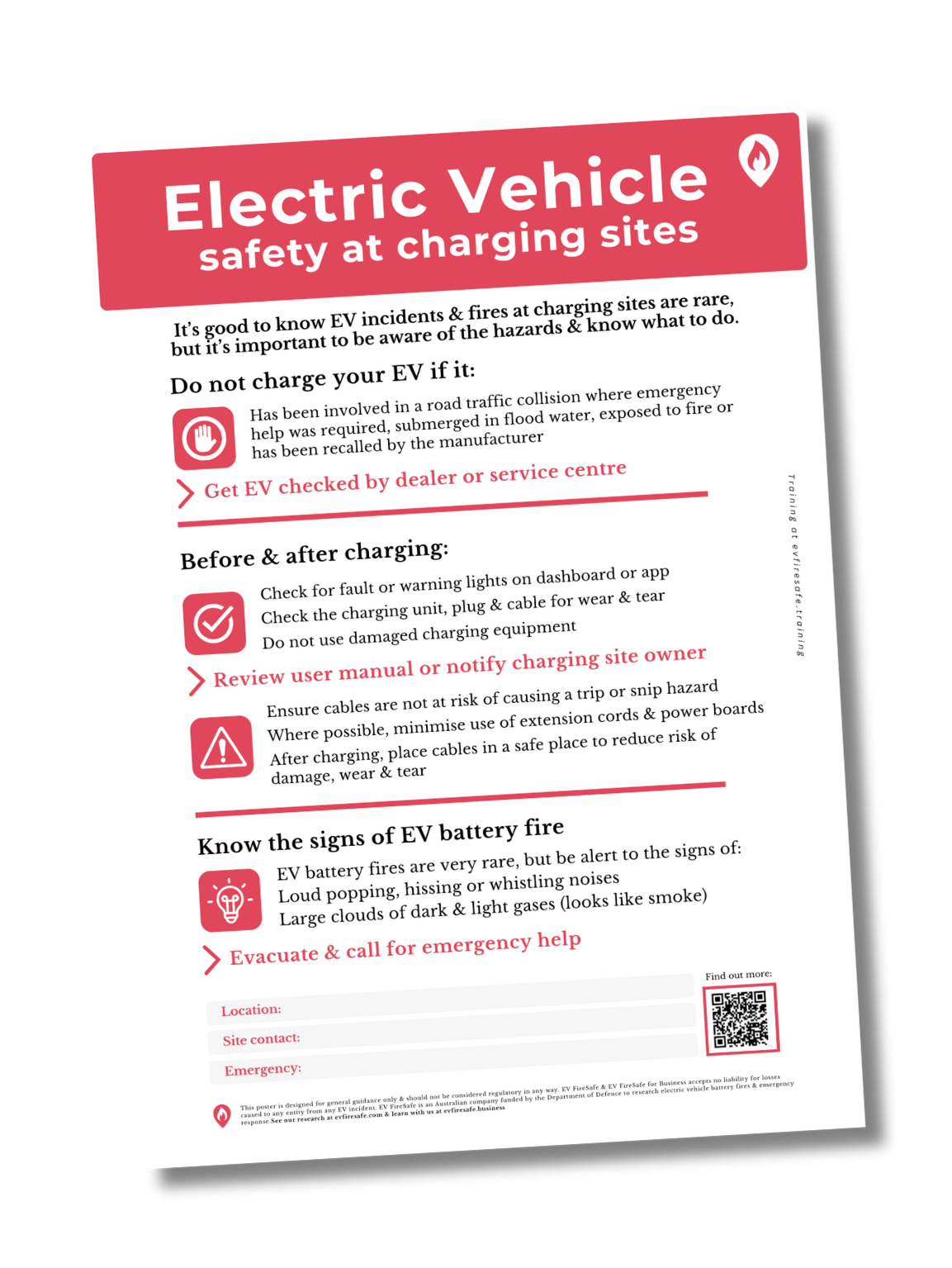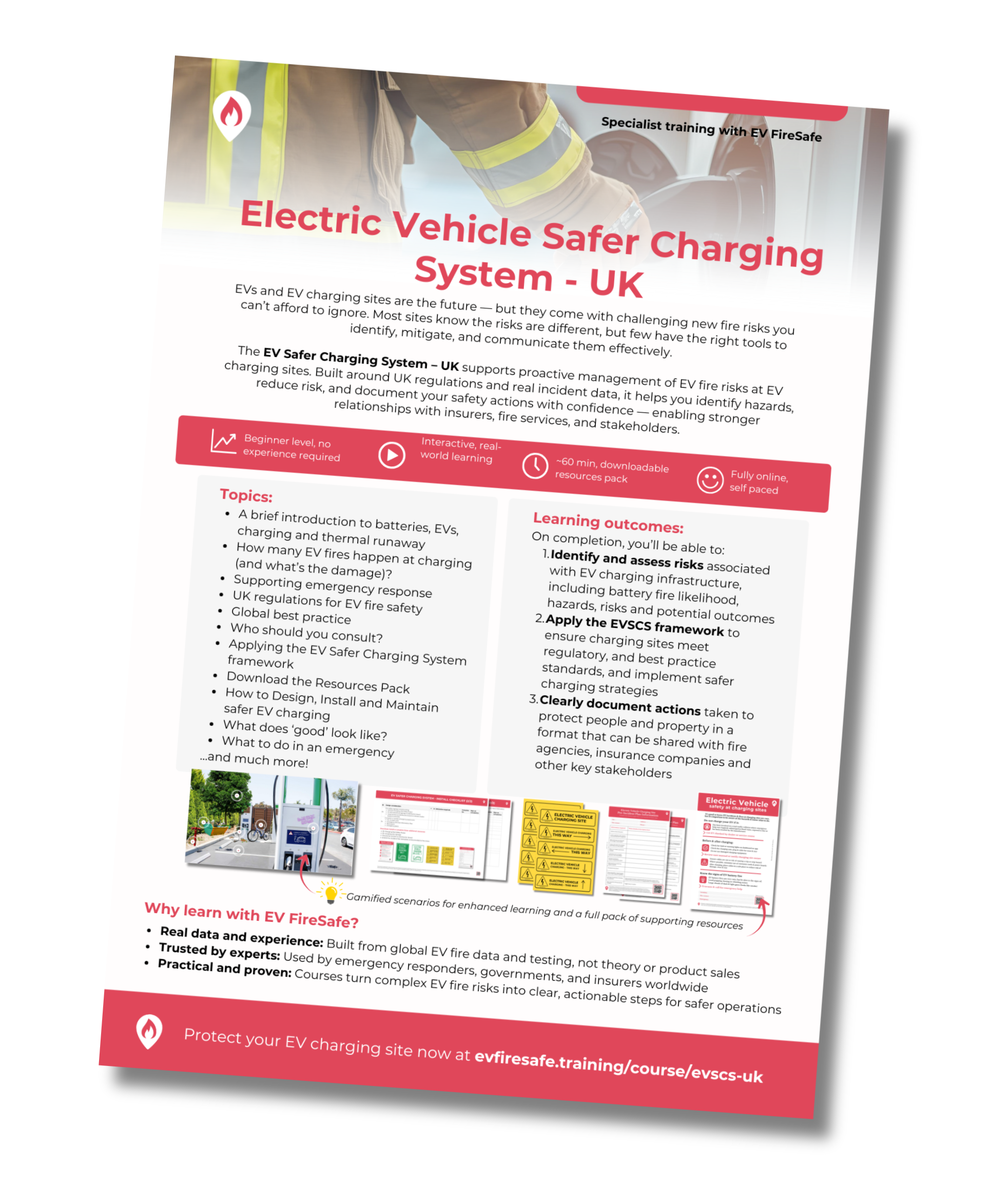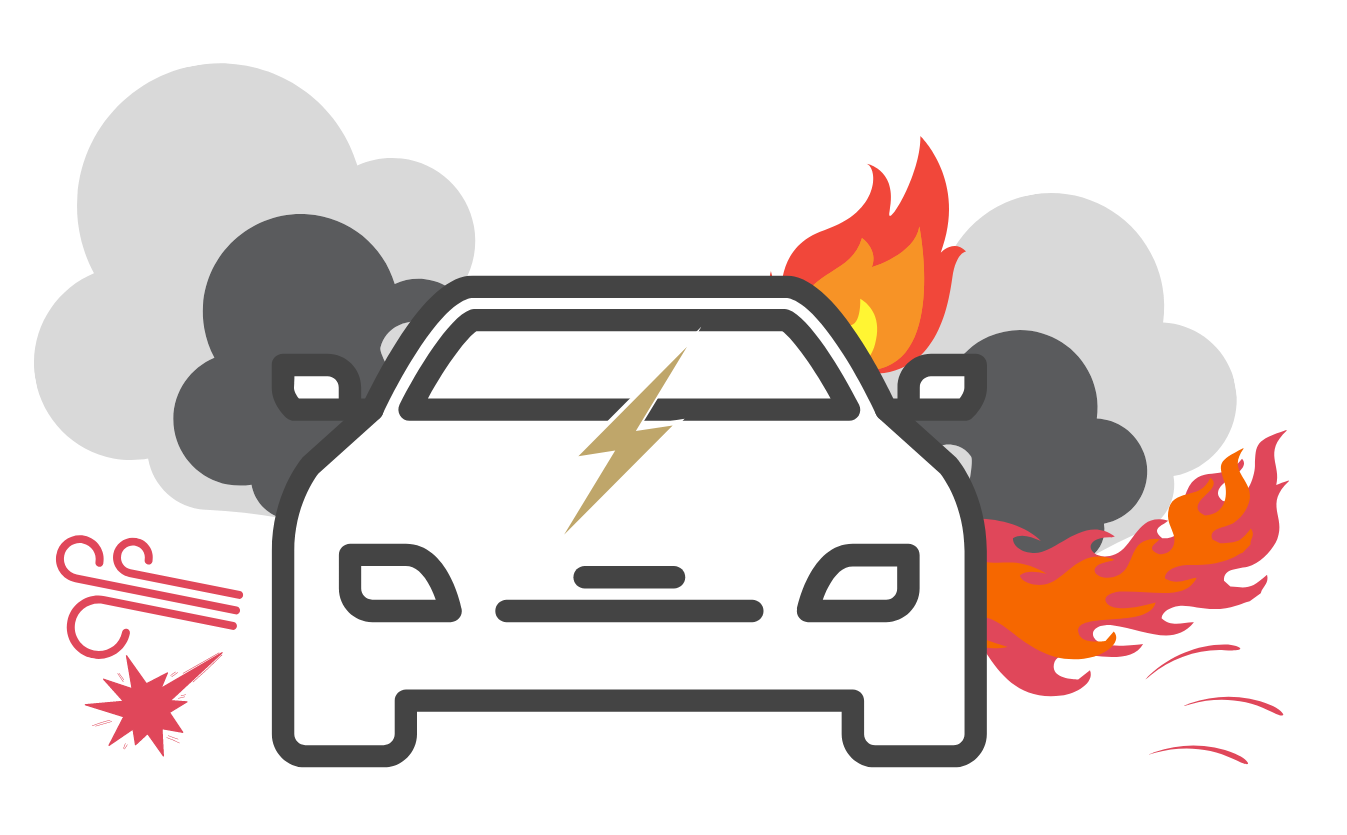Build and assess safer EV charging
EV Safer Charging System - UK
Proactive risk management for an electrified world
Tap into world-leading knowledge with this complete framework for safe and compliant electric vehicle charging site fire safety.
Globally, incidents at EV charging sites are increasing...not just damaging property, but disrupting operations, raise insurance costs, and put lives at risk.
The EV Safer Charging System UK gives you the tools to assess, mitigate, and communicate risks effectively.
Format
Online delivery
Course duration:
~60 minutes
Designed for:
EV charging site owner and managers
Content:
How to install compliant and safe EV charging
Start:
Immediately (at own pace)
Price
AU$249.00
A complete system for safer charging
Write your awesome label here.
Follow this system to:
1
Identify and assess EV fire risks
Better understand the risks associated with EV charging infrastructure, including fire likelihood, hazards and potential outcomes, plus the risks to emergency responders
2
Apply a safer charging framework
Ensure your charging site meets mandatory UK regulation and global best practice by following the downloadable checklists and templates to implement safer charging strategies
3
Clearly document your actions
Outline the steps taken to protect people and property from EV fires in a format that can be shared with fire agencies, insurance companies and other key stakeholders
Build safer EV charging today
Don’t wait for a near miss or incident to highlight the gaps in your fire safety planning. The EV Safer Charging System UK gives you the knowledge, tools, and documentation to reduce risk — and prove it.
What's in the EVSCS course?
Module 1 - Welcome and course orientation
- Getting started
- About EV FireSafe
Module 2 - The Basics of EVs, Charging and Battery Fire Risk
- A brief introduction to lithium-ion batteries and electric vehicles
- How does EV charging work?
- What is thermal runaway?
- How many EV fires happen at charging sites?
- Supporting emergency response
Module 3 - Regulations and Best Practice
- Regulations for EV charging site fire safety (Australia and New Zealand)
- Best practice guidance for EV charging site fire safety
- Who should you consult about EV charging fire safety?
Module 4 - Applying the EVSCS Framework
- Applying the EV Safer Charging System Framework
- Safer EV charging - DESIGN phase
- Safer EV charging - INSTALL phase
- Safer EV charging - MAINTAIN phase
- What does 'good' look like?
Module 5 - In An Emergency
- What to do in an emergency
- 'Do I need to buy a fire blanket?'
Module 6 - Additional Resources and Conclusion
- Helpful resources
- Wrap up (and thank you!)
What's in the EVSCS Resources Pack?

Download the course description

Trusted by:
Proactive risk management of EV battery fires at charging sites
Introducing your expert instructors
Emma Sutcliffe
EV FireSafe director
Emma is the Director of EV FireSafe, a private company funded by the Australian Department of Defence to research EV battery fires & emergency response. She is also an operational volunteer firefighter.
Dan Fish
EV FireSafe TECHNICAL SPECIALIST
Dan is EV FireSafe's Technical Specialist & EV safety guru. He started his career as a mechanic & became a full-time firefighter 20 years ago. He now has an encyclopaedic knowledge of EVs & high voltage systems.
Professor Paul Christensen
lithium-ion safety
Paul is a former Professor of Pure & Applied Electrochemisty at Newcastle University, UK. His work in lithium-ion battery fires is globally recognised for it's contribution to safety.

